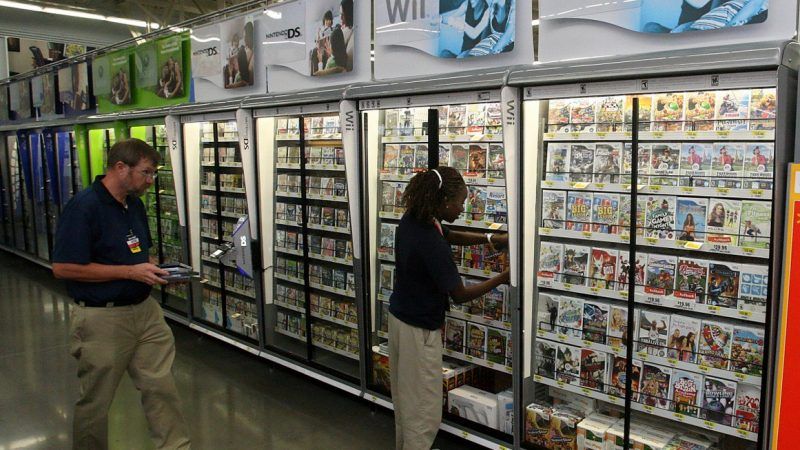Does Walmart Really Think a 30-Second Clip of Call of Duty Will Traumatize Us All?
Store orders ban of violent displays, but is still selling guns and video games.

Walmart responded to a mass shooting on its own property last weekend with an eyebrow-raising order: It told the electronics departments in all stores nationwide to remove signs, displays, and demos that show violent video games and hunting videos. Meanwhile, the store will keep selling both violent video games and guns.
The order came from a memo posted on Twitter, circulated by Reddit, and subsequently confirmed by a company spokesperson:
https://twitter.com/shepardcdr/status/1159235488898830338
USA Today investigated further and determined that this response is not based on some sort of belief that snippets of video game violence might trigger psychotic episodes. Rather, the company has "taken this action out of respect for the incidents of the past week," a spokesperson told USA Today. So they're concerned that the exposure to video games or violent movies on displays will traumatize shoppers.
While it's understandable why Walmart might want to do this for the El Paso, Texas, stores given the lingering trauma among both the residents and employees there, it's mystifying that this is a national order.
Of course, many people are angry that Walmart is merely censoring images and not anything else—it's going to keep selling guns and video games, after all. Nearly every story about this memo focuses on the fact that Walmart is still selling guns, despite pressure and campaigns to try to convince the company to stop. Walmart stopped selling so-called assault rifles in 2015 and does not offer the type of weapon used by the El Paso shooter.
Walmart's response seems like a compromise designed to make nobody happy. The company can decide for itself how it wants to advertise its products and whether it wants to continue selling guns or violent video games. The insistence on blaming vendors for violent behavior by gun purchasers, however, is a terrible trend that not only fails to solve the problem but will ultimately serve to deprive law-abiding citizens of products they have every right to purchase and own.


Show Comments (10)